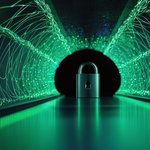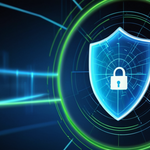
Summary: Proton VPN emerges as one of the most secure and trustworthy virtual private network services available in 2025, distinguished primarily by its Swiss jurisdiction, independently audited no-logs policy, open-source architecture, and transparent operational practices. Based on extensive technical testing, user feedback from Reddit and other platforms, and security audits, Proton VPN demonstrates robust encryption protocols (AES-256 and ChaCha20), multiple VPN protocols including the modern WireGuard standard, and comprehensive security features such as DNS leak protection and kill switch functionality. While the service exhibits some limitations in speed performance compared to certain competitors and has received mixed feedback regarding customer support responsiveness, the overwhelming consensus from both security experts and community users indicates that Proton VPN provides legitimate, dependable privacy protection without compromising user data for profit. The company’s business model, which relies exclusively on paid subscriptions rather than user data monetization, combined with its foundation in Switzerland—a jurisdiction outside major surveillance alliances with strong constitutional privacy protections—positions Proton VPN as a genuinely safe option for users prioritizing privacy and security in their online activities.
Privacy Architecture and No-Logs Policy Verification
The cornerstone of Proton VPN’s safety proposition rests upon its explicitly stated and independently verified no-logs policy, which distinguishes it from many competitors in the VPN marketplace. Proton VPN maintains that it does not log which websites users visit, does not store session usage logs of online activity, does not retain IP addresses, does not log session lengths, and does not track or store location-based information. This commitment extends universally across all subscription tiers, including the free service tier, ensuring that users receive identical privacy protections regardless of payment status. The significance of this promise cannot be overstated, as VPN services technically possess the capability to intercept and monitor all user traffic passing through their servers, making the VPN provider the de facto internet service provider from a data access perspective.
To address legitimate skepticism about such privacy claims, Proton VPN has subjected its infrastructure and operational practices to rigorous third-party audits conducted by Securitum, a leading European security auditing firm that oversees more than 300 security testing projects annually for major corporations and banks. The most recent comprehensive audit completed in 2025 explicitly confirmed that Proton VPN’s infrastructure shows “no instances of user activity logging, connection metadata storage, or network traffic inspection that would contradict the No-Logs policy,” while verifying the implementation of “robust administrative and technical controls, including automated configuration management and a formal dual-control change process, which are designed to ensure the continuous integrity of the no-logging environment.” This represents the fourth consecutive annual audit of Proton VPN’s no-logs practices, establishing a consistent track record of compliance rather than isolated compliance events. The thoroughness of these audits is evidenced by the specific technical questions Securitum investigated, including whether user activity is tracked on production VPN servers, whether connection metadata and DNS queries are logged, whether network traffic is actively inspected or logged, whether services accessed are monitored in correlation with specific VPN servers, and whether Change Management processes enforce the no-logs policy across all geographic regions and subscription tiers.
This commitment to third-party verification extends beyond mere policy statements—the actual legality of Proton VPN’s no-logs policy was tested in a real court case in 2019. When Proton VPN received an order to turn over logs to identify a user, the company was unable to comply because such logs literally did not exist. This concrete demonstration that the no-logs policy is not merely aspirational but operationally enforced at the infrastructure level distinguishes Proton VPN from numerous competitors who make similar claims without comparable verification. Reddit discussions consistently reference this 2019 court test as evidence of Proton’s credibility, with users noting that this real-world validation provides greater assurance than theoretical privacy promises made by other VPN services.
Technical Security Implementation and Encryption Standards
Proton VPN implements security architecture grounded in cryptographic standards proven effective across military and financial sectors, providing technical reassurance to users concerned with data protection. The service employs AES-256 encryption, an NIST-approved cipher used by the United States government to secure classified information, combined with RSA-4096 for TLS key exchange. This layering of encryption standards ensures that even in highly improbable scenarios where one encryption method might be compromised, additional layers provide continued protection. For users prioritizing speed alongside security, Proton VPN offers WireGuard, a cutting-edge VPN protocol that utilizes ChaCha20 encryption—cryptographically equivalent in security to AES-256 within the VPN context but substantially more lightweight and efficient. Testing by independent security researchers demonstrates that WireGuard operates approximately 10 to 15 percent faster than the older OpenVPN protocol while maintaining security parity.
Beyond basic encryption, Proton VPN implements forward secrecy, a technical mechanism that generates new encryption keys for each VPN session with regular key rotation within each session. This approach ensures that even if a single session’s encryption key were somehow compromised in the future, prior sessions would remain protected because different keys were employed. The company additionally offers a proprietary Stealth protocol specifically designed to circumvent VPN traffic blocks and censorship mechanisms, addressing the practical reality that mere encryption alone cannot prevent sophisticated censors from identifying and blocking VPN traffic based on network signatures and patterns. For users navigating complex network environments, Proton VPN provides a “Smart” protocol option that automatically probes network conditions and selects the optimal protocol configuration to balance security and accessibility.
DNS leak protection represents a critical yet frequently overlooked security component that Proton VPN addresses comprehensively. Standard VPN usage without DNS leak protection can reveal browsing history to internet service providers and website operators through DNS query interception, potentially undermining the entire privacy benefit of the VPN connection. Proton VPN routes all DNS queries through its own secure servers rather than allowing devices to default to ISP-operated DNS servers. Testing conducted by independent reviewers confirms that Proton VPN passes DNS leak tests consistently, with no detection of IP address leakage. IPv6 leak protection similarly ensures that users connecting via IPv6-capable networks do not inadvertently expose their real IP addresses through alternative protocol routes.
The kill switch feature implemented across all Proton VPN applications provides protection during the critical moments when VPN connections fail or disconnect unexpectedly. This feature immediately blocks all internet traffic to and from the user’s device until the VPN connection is re-established, preventing the accidental exposure of IP addresses and DNS queries during transient connection interruptions. Advanced variations of the kill switch available on Windows and Linux platforms provide permanent kill switch functionality, preventing internet access entirely if the user manually disconnects the VPN without also disabling the kill switch—a configuration useful for users who require guaranteed VPN-protected connectivity. Reddit users frequently cite the effective functioning of Proton VPN’s kill switch as a source of confidence, with multiple reports confirming that the feature successfully prevented data leakage during connection drops.
Open-Source Architecture and Independent Auditing
A distinctive characteristic of Proton VPN contributing to its safety reputation is the complete open-source nature of its codebase, enabling independent security researchers and privacy advocates to examine the actual implementation of security features rather than relying solely on company assertions. This radical transparency approach means that any claimed security feature can theoretically be verified by examining the source code directly through GitHub repositories. The open-source model creates powerful incentive structures favoring security, as any undisclosed vulnerabilities or backdoors would be discoverable by the global security research community, resulting in public exposure and company reputational destruction. This differs fundamentally from closed-source competitors who maintain security through obscurity—a practice security experts generally disdain.
Complementing the open-source model, Proton VPN maintains an active bug bounty program that financially incentivizes security researchers worldwide to identify and responsibly disclose vulnerabilities. This approach harnesses the distributed problem-solving capacity of the global security community rather than relying exclusively on internal development teams. The combination of open-source code audit capabilities with financial incentives for vulnerability discovery creates a robust security environment where vulnerabilities are likely to be discovered and remediated rapidly. Independent audit reports documenting security assessments by firms including Securitum and SEC Consult verify that Proton VPN’s security posture matches its public claims.
Community Feedback and Reddit Perspectives on Safety
Reddit discussions reveal a substantially positive community sentiment regarding Proton VPN’s safety, though with important nuances distinguishing between genuine security concerns and secondary issues such as speed performance or customer service responsiveness. Across multiple subreddits focused on privacy, security, and VPN technology, users consistently characterize Proton VPN as genuinely trustworthy with transparent practices that inspire confidence. One widely-cited Reddit perspective emphasizes that Proton’s transparency, coupled with its identifiable leadership and public reputation built through the successful Proton Mail service, creates strong incentive alignment against privacy violations: “If they are lying about keeping logs, we could go to their headquarters and speak to them if we wanted, and we know their names, which means they have a reputation to uphold. They also have a very popular mail service, which means if they lie about their policies, they would not only lose most of their VPN subscribers but also mail users. They have everything to lose by lying. Many other VPN companies are hiding their identity, which means if it was discovered they were logging, they could just shut down and start a new company.”
Reddit users repeatedly acknowledge Proton VPN as the only free VPN service deserving trust within the broader ecosystem of free VPN offerings. This distinction is significant because the free VPN market is dominated by services employing problematic monetization models including user data sales, data logging contrary to policy statements, and malware distribution. Privacy-focused subreddit moderators consistently recommend Proton VPN specifically because of its sustainable business model (paid subscription revenue), transparent privacy policies, and audited operations—factors collectively distinguishing it from essentially all other free VPN services. One Reddit discussion documents this consensus: “Windscribe has a pretty good free plan” in response to queries about alternatives to Proton, indicating that Proton VPN remains the exceptional standard for free VPN trust.
However, Reddit discussions also surface mixed experiences regarding customer support responsiveness and consistency. While some users report receiving helpful responses within 24 hours, others describe frustrating multi-day delays in support ticket responses and generic template-based answers that fail to address specific technical issues. These customer service experiences do not constitute safety issues per se, but rather operational quality concerns that can affect user satisfaction and problem resolution when technical difficulties arise. Similarly, Reddit users document variable experiences with disconnection and reconnection reliability, with some reporting stable connections while others describe intermittent disconnections—issues potentially attributable to specific network configurations rather than fundamental VPN design flaws.
Swiss Jurisdiction and Legal Privacy Protections
Beyond technical architecture, Proton VPN’s safety derives partly from its geographic and legal positioning in Switzerland, a jurisdiction providing constitutional and statutory privacy protections substantially exceeding those available in most alternative locations. Switzerland maintains a constitutional right to privacy and strict data protection laws that restrict government surveillance authority. Critically, Switzerland is not a member of the United States-led Five Eyes, Nine Eyes, or Fourteen Eyes surveillance agreements that legally obligate participating countries to share signals intelligence and cooperate in surveillance activities. This geopolitical positioning means that even if U.S., UK, or other intelligence agencies seek Proton VPN user data, Swiss law does not provide mechanisms for legally compelling such disclosure through bilateral intelligence sharing arrangements.
Swiss telecommunications surveillance law (SPTA) does not impose mandatory data retention requirements on VPN services. This contrasts sharply with the legal environment in numerous other countries where ISPs and VPN providers can be legally compelled to maintain activity logs for government access. A 2021 Swiss Federal Administrative Court ruling further affirmed that email and VPN services cannot be classified as telecommunications providers subject to mandatory data retention obligations, explicitly determining that such services are exempt from communications surveillance requirements. Proton VPN benefits from this ruling, which legally establishes that Swiss law does not require the company to maintain activity logs or cooperate with mandatory surveillance programs—protections backed by enforceable legal penalties for violation.
The practical importance of Swiss jurisdiction was demonstrated in the aforementioned 2019 legal case where Proton VPN received a valid court order demanding user information but was unable to comply because no such logs existed. A company operating under U.S. jurisdiction or within Five Eyes countries might face legal compulsion to log such information prospectively to satisfy future orders. However, Proton VPN’s Swiss jurisdiction provided legal protection against such compulsory logging obligations, allowing the company to refuse compliance based on Swiss law rather than merely on policy preferences.

Company Background and Organizational Commitment to Privacy
Understanding Proton VPN’s safety requires context regarding the company’s founding principles and organizational identity. Proton was founded in 2014 by scientists who met at CERN (Conseil Européen pour la Recherche Nucléaire), the European Organization for Nuclear Research located in Geneva, Switzerland. The company’s founder and CEO Andy Yen holds a PhD in particle physics from Harvard University and worked as a research scientist at CERN before shifting to technology entrepreneurship. This scientific background informs the company’s commitment to evidence-based security and transparency principles typical of academic research culture.
Critically, Proton’s organizational structure insulates the company from pressure to monetize user data for profit. The primary shareholder is the Proton Foundation, a nonprofit entity whose mission is to advance online security, privacy, and freedom rather than to maximize shareholder returns. This structural arrangement ensures that profit incentives do not conflict with privacy commitments, as is the case with venture capital-backed VPN services beholden to investor expectations for growth and profitability. The company deliberately rejects advertising revenue and data monetization, instead relying exclusively on paid subscription revenue from users who directly purchase VPN services. This business model alignment creates powerful incentive structures favoring privacy protection, as the company’s revenue flows directly from satisfied users rather than from data brokers or advertisers.
Streaming Capabilities and P2P Support
While not strictly a safety consideration, Proton VPN’s documented functionality across diverse use cases informs overall assessment of the service’s reliability and legitimacy. The service successfully unblocks Netflix content from multiple geographic regions including the United States, United Kingdom, India, Italy, Australia, Germany, Canada, Japan, France, South Korea, and Switzerland. Proton VPN’s paid tiers support torrenting and peer-to-peer file sharing across servers in approximately 120 countries, with port forwarding capabilities to optimize P2P performance. These capabilities are meaningful because VPN services specifically designed for surveillance and data harvesting typically restrict P2P functionality to prevent user activities that might generate valuable behavioral data.
The consistent functionality across diverse streaming platforms and P2P applications demonstrates robust infrastructure and indicates that Proton VPN maintains technical quality standards expected of legitimate services. Users who intend to use the service for streaming and torrenting report consistent success, indicating that the service delivers on functional promises that could theoretically be used to enhance user engagement for data collection purposes—yet Proton’s no-logs policy ensures such engagement data is not captured and monetized.
Speed Performance and Realistic Limitations
Detailed speed testing by independent reviewers reveals that Proton VPN provides solid performance suitable for most online activities, though with a consistent pattern of operating marginally slower than certain competitors such as NordVPN. In comparative testing using identical base internet connections, Proton VPN typically achieved speeds 5-20 percent below top competitors, depending on server location and protocol selection. Testing a 900 Mbps baseline connection, independent reviewers documented speeds of approximately 582 Mbps to Los Angeles, 699 Mbps to Seattle, 524 Mbps to New York, and 614 Mbps to United Kingdom servers when using the WireGuard protocol. These speed measurements indicate manageable throughput suitable for web browsing, streaming, and general internet use, though users pursuing extremely latency-sensitive activities such as competitive online gaming might perceive performance degradation.
The Secure Core (double VPN) servers providing additional routing through privacy-friendly countries exhibit lower speeds than standard servers, with testing documenting approximately 126 Mbps for Secure Core connections. This speed tradeoff is mathematically inevitable when routing traffic through two sequential servers rather than one, and represents the user’s conscious choice to accept reduced performance in exchange for enhanced security against network-level attacks. Proton VPN’s VPN Accelerator feature, which theoretically provides up to 400 percent speed improvements through network optimization, has been criticized by some reviewers as overstating actual performance gains, though the feature does provide measurable improvement in certain network conditions.
The speed performance limitation does not constitute a safety concern per se, but rather reflects legitimate technical tradeoffs between security overhead and throughput. Users requiring maximum speed might reasonably prefer faster alternatives, while privacy-prioritizing users typically accept moderate speed reduction as worthwhile given the security and privacy benefits. Reddit discussions reveal that users specifically selecting Proton VPN for privacy reasons generally accept speed limitations as acceptable tradeoff, while users unexpectedly encountering slower performance express greater disappointment.
Limitations and Threat Boundaries
Comprehensive safety assessment requires honestly identifying boundaries to Proton VPN’s protective capabilities, as a truly safe VPN service should transparently acknowledge what it cannot defend against rather than making absolutist claims. Proton VPN cannot provide perfect anonymity because while websites cannot identify users’ true IP addresses, Proton VPN itself necessarily knows the true IP addresses of connecting devices. However, this technical capability is constrained by Swiss law prohibiting mandatory logging of user IP addresses, and by Proton’s audited commitment to not log such information. The anonymity protection therefore derives from legal guarantees rather than mathematical certainty, creating theoretical vulnerability should Swiss law dramatically change or should Proton fundamentally alter its operational practices.
Proton VPN cannot overcome bandwidth throttling applied by internet service providers to the user’s entire internet connection, as the VPN connection itself traverses the throttled connection provided by the ISP. Similarly, sophisticated censorship programs employing Deep Packet Inspection can identify and selectively block VPN traffic by recognizing network signatures, even though the traffic content remains encrypted. Nations including China employ censorship techniques that can completely block access to Proton VPN servers through IP address blockades and can be partially circumvented through Stealth protocol but remain substantially resistant to evasion. Proton VPN acknowledges these limitations explicitly, documenting that the Stealth protocol provides only approximately 50 percent probability of success in extremely restrictive countries such as China or Russia.
Security Vulnerabilities and Transparency in Disclosure
Proton VPN has transparently addressed security vulnerabilities including CVE-2019-14899, a network-level vulnerability affecting essentially all VPN services employing route-based protocols on Android, iOS, and macOS devices. Rather than concealing this vulnerability, Proton VPN published detailed technical analysis documenting that the vulnerability cannot be exploited for mass surveillance but rather allows specific targeted attackers controlling the attacker’s network connection to probe whether users are connected to specific destinations. The company documented implementation of mitigations and work toward complete fixes, demonstrating security culture prioritizing transparency over reputation management.
This approach to vulnerability disclosure contrasts with competitors who sometimes minimize, obscure, or delay publication of security issues. Proton VPN’s willingness to publicly document security concerns, explain technical limitations clearly, and commit to remediation work builds community confidence that the company is genuinely committed to security rather than simply maintaining appearances. Reddit users frequently cite this transparent vulnerability disclosure as evidence supporting Proton VPN’s trustworthiness.

Specific User Safety Concerns from Reddit
Reddit discussions surface several specific safety concerns worth addressing directly. Some users express concern about centralizing multiple services (VPN, email, password manager, cloud storage) with a single provider, worrying that service interruptions or company problems could simultaneously compromise multiple aspects of digital life. However, this concern primarily reflects organizational risk rather than safety—the risk involves availability rather than privacy or security. Proton’s separable service architecture means users can employ only Proton VPN without adopting other Proton services, or can use Proton services while employing alternative VPN providers.
Some Reddit users also discuss concerns about Reddit and other platforms blocking Proton VPN IP addresses, resulting in repeated CAPTCHA challenges or access denial. These blocking incidents reflect websites’ anti-abuse measures triggered by excessive traffic from shared VPN server IP addresses rather than indicating any safety flaw in Proton VPN. The blocking behavior reflects platform policies rather than compromised security or privacy.
Comparative Safety Assessment Against Alternatives
Evaluating Proton VPN’s safety requires comparative context within the VPN marketplace. When compared to major commercial competitors such as NordVPN, both services employ audited no-logs policies, open-source or substantially transparent architectures, and robust encryption standards. However, Proton VPN’s Swiss jurisdiction provides unique legal advantages that competitors located in Panama (NordVPN) or other jurisdictions cannot replicate, particularly regarding immunity from Five Eyes surveillance cooperation obligations. Conversely, competitors sometimes provide modestly faster speeds and more extensive customer support access, though these represent functionality and service quality rather than safety concerns.
When compared to free VPN alternatives, Proton VPN stands uniquely as a service deserving trust. Most competing free VPN services employ business models monetizing user data through logging activity and selling information to data brokers or advertisers. Proton VPN’s free tier receives identical privacy protections as paid tiers precisely because the company’s revenue derives from paid subscriptions rather than from user data monetization. The service includes unlimited bandwidth on the free tier, genuinely free indefinitely, with no artificial data caps or speed restrictions designed to coerce users into upgrading—an unusual commitment in the free VPN marketplace.
Practical Safety Recommendations
For users evaluating whether Proton VPN meets their specific safety requirements, several considerations emerge from analysis. Users prioritizing absolute privacy and security should select paid subscription tiers rather than the free version, as paid tiers unlock Secure Core servers providing additional routing through privacy-friendly countries, and enable features such as split tunneling on Windows and Android that can enhance security in specific scenarios. Users in extremely restrictive countries such as China or Russia should implement Stealth protocol while acknowledging realistic limitations on effectiveness, potentially supplementing Proton VPN with complementary privacy tools such as Tor for highest security scenarios.
Users concerned about specific threat models should carefully review Proton VPN’s published threat model documentation, which transparently explains what protections the service provides and where limitations exist. Users requiring maximum anonymity should employ Proton VPN in combination with tools such as Tor, rather than relying on VPN alone for anonymity. Users concerned about customer support responsiveness should test the service’s support system before committing to long-term subscriptions, as support quality appears variable in Reddit reports.
Recent Infrastructure and Feature Developments
Proton VPN’s roadmap for 2025-2026 demonstrates ongoing commitment to service improvement and feature expansion. Recent developments include expansion of free plan server locations from five to ten countries, including additions such as Mexico, Canada, Switzerland, Norway, and Singapore, providing free users with greater geographic flexibility. The company is implementing a new VPN architecture designed to improve app performance and stability while enabling faster feature deployment and support for future capabilities such as post-quantum encryption. Development of a Linux command-line interface tool represents responsiveness to user demand for terminal-based VPN access, expanding the service’s utility for advanced users and system administrators.
Recent security improvements include expansion of NetShield Ad-blocker’s phishing domain database to block “almost all known phishing domains,” providing users with DNS-level malware and phishing protection without requiring browser extensions. Battery optimization improvements for mobile applications reduce power consumption when using cellular connections while maintaining background VPN protection, addressing a practical concern for smartphone users. These ongoing developments indicate that Proton VPN is not static but rather continuously improving security, functionality, and performance based on user feedback and emerging technical capabilities.
Verdict: Proton VPN Safety Through the Reddit Lens
Proton VPN emerges from comprehensive technical analysis, independent auditing, and community feedback as a genuinely safe and trustworthy virtual private network service suitable for users prioritizing privacy and security in their online activities. The service implements state-of-the-art encryption using AES-256 and modern protocols such as WireGuard, provides audited no-logs policies verified through four consecutive years of third-party security assessments, and operates from Swiss jurisdiction providing legal protections against compulsory surveillance. The company’s open-source architecture, nonprofit primary shareholder structure, and transparent communication with the user community establish organizational incentives fundamentally aligned with user privacy rather than conflicting with privacy through data monetization.
While Proton VPN exhibits limitations in speed performance compared to certain competitors, in customer support responsiveness variability, and in effectiveness against sophisticated governmental censorship, these limitations do not constitute safety failures but rather represent realistic technical and operational tradeoffs. The service’s strength lies in consistent, dependable privacy protection grounded in proven encryption, audited no-logs operations, and legal protections—characteristics that address the core safety concerns driving VPN adoption among privacy-conscious users.
Reddit community sentiment substantially validates the technical assessment, with users consistently identifying Proton VPN as the only free VPN service worthy of trust and recognizing the service as a legitimate, transparent, and trustworthy option across diverse use cases. The 2019 court case validating Proton VPN’s commitment to its no-logs policy constitutes real-world evidence of legitimate operations that distinguishes Proton VPN from competitors making similar but unverified claims.
For users evaluating whether Proton VPN is safe, the evidence supports a confident affirmative answer within realistic boundaries. Users should select paid subscriptions for maximum protection features, understand the service’s documented limitations in extremely restrictive environments, and pair Proton VPN with complementary privacy tools if their threat models require absolute anonymity. However, for the substantial majority of users seeking to protect their browsing privacy from ISP surveillance, prevent data discrimination by internet providers, maintain confidentiality on public WiFi networks, and bypass geographic content restrictions, Proton VPN provides safe, dependable, and trustworthy privacy protection grounded in technical excellence and operational transparency.
Protect Your Digital Life with Activate Security
Get 14 powerful security tools in one comprehensive suite. VPN, antivirus, password manager, dark web monitoring, and more.
Get Protected Now





